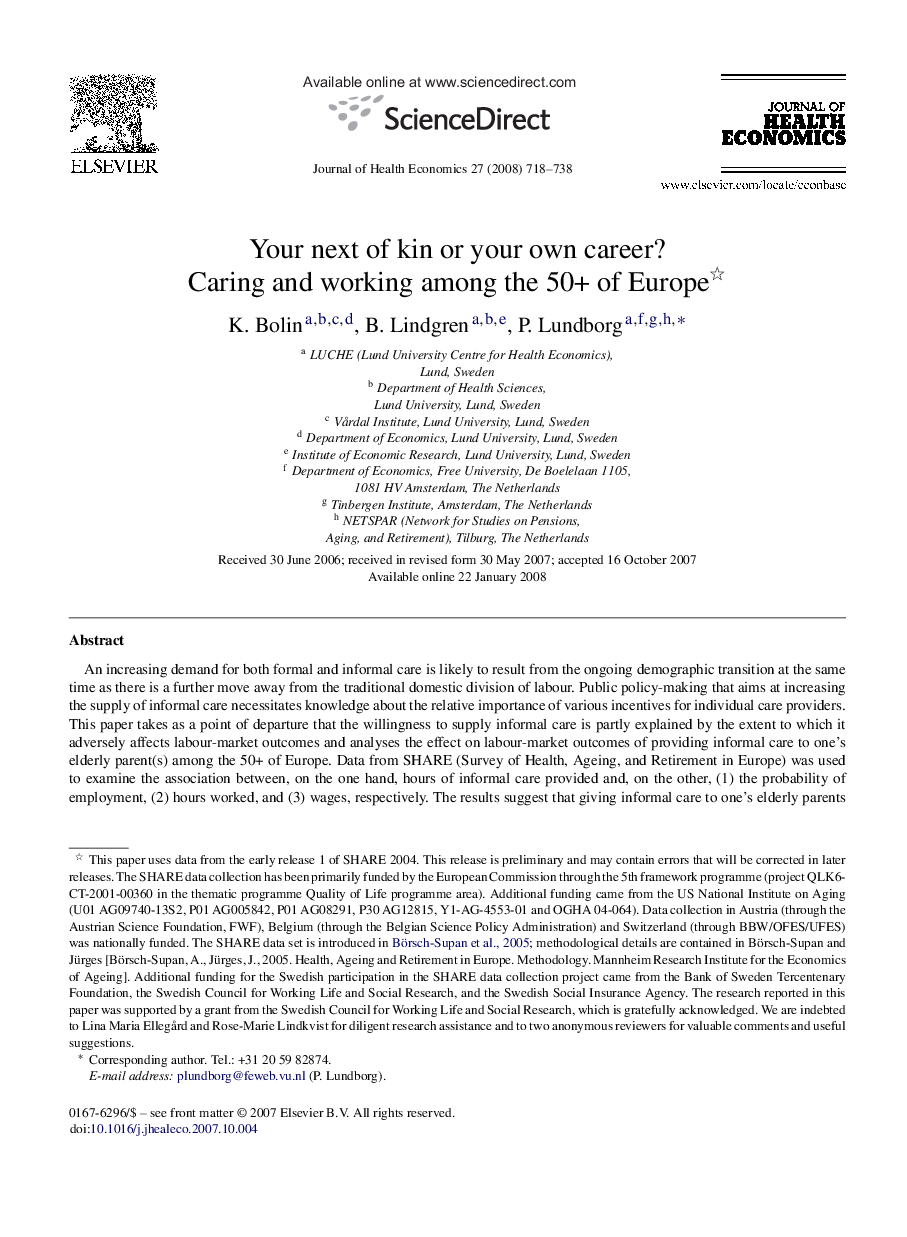| Article ID | Journal | Published Year | Pages | File Type |
|---|---|---|---|---|
| 962104 | Journal of Health Economics | 2008 | 21 Pages |
An increasing demand for both formal and informal care is likely to result from the ongoing demographic transition at the same time as there is a further move away from the traditional domestic division of labour. Public policy-making that aims at increasing the supply of informal care necessitates knowledge about the relative importance of various incentives for individual care providers. This paper takes as a point of departure that the willingness to supply informal care is partly explained by the extent to which it adversely affects labour-market outcomes and analyses the effect on labour-market outcomes of providing informal care to one's elderly parent(s) among the 50+ of Europe. Data from SHARE (Survey of Health, Ageing, and Retirement in Europe) was used to examine the association between, on the one hand, hours of informal care provided and, on the other, (1) the probability of employment, (2) hours worked, and (3) wages, respectively. The results suggest that giving informal care to one's elderly parents is associated with significant costs in terms of foregone labour-market opportunities and that these adverse effects vary between countries.
